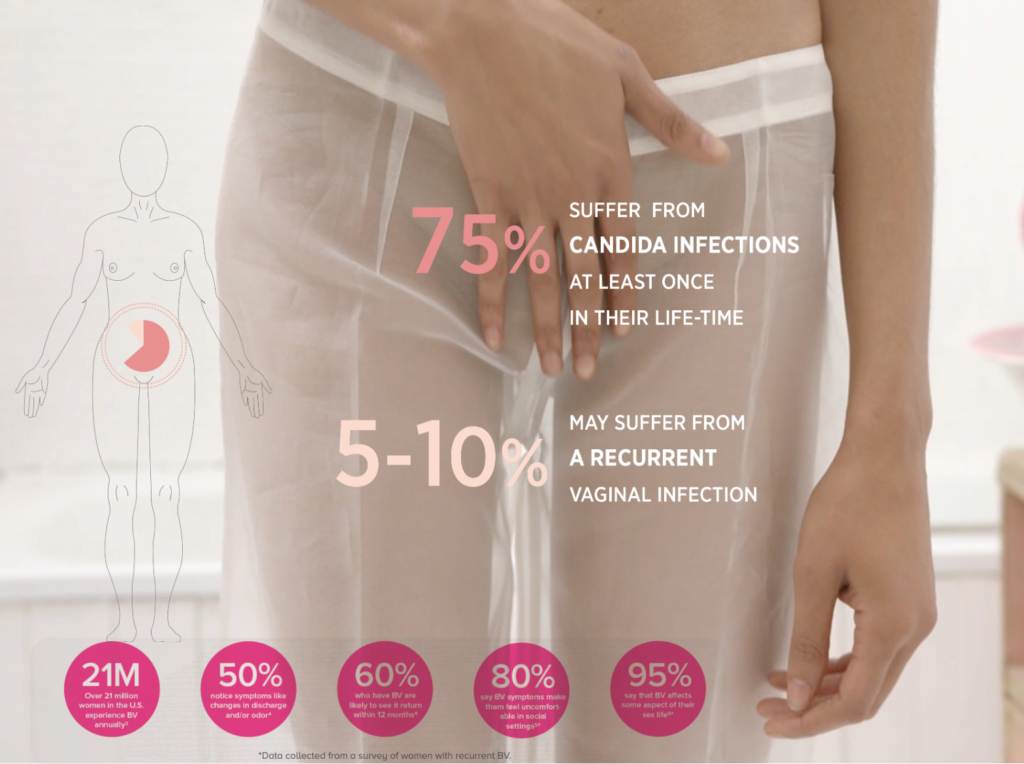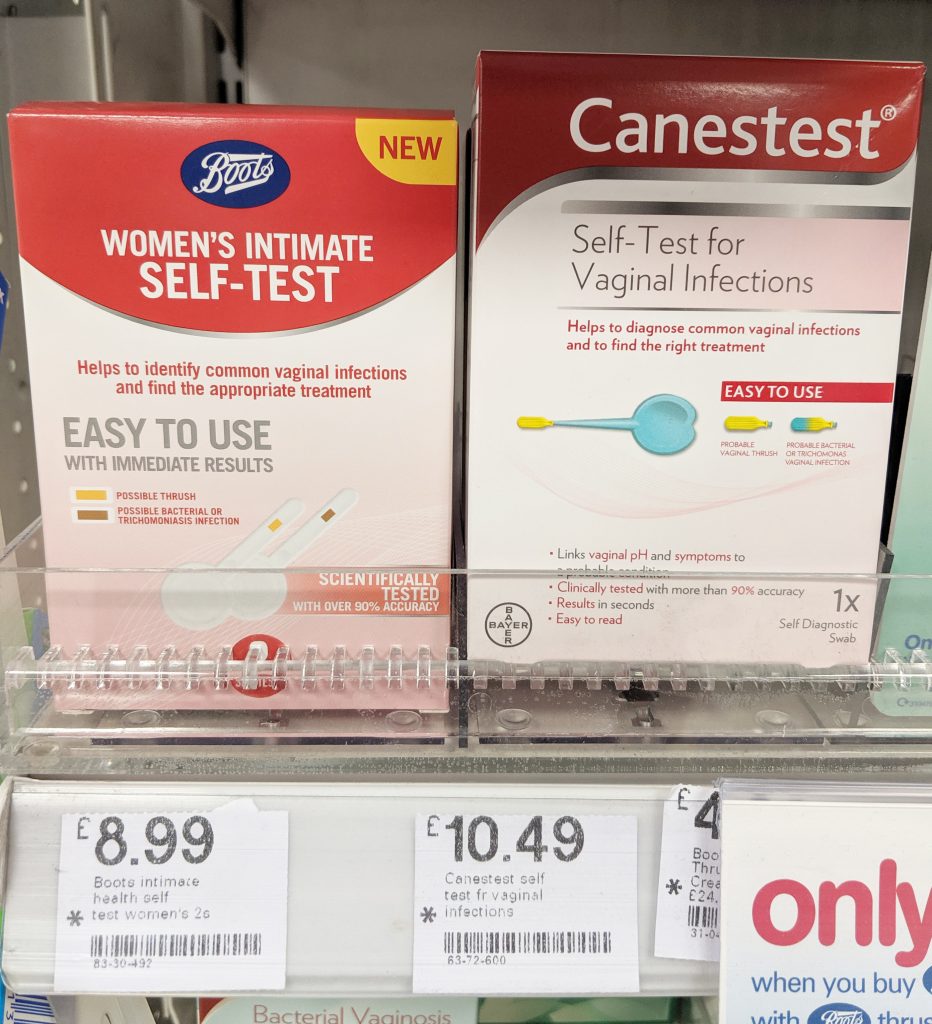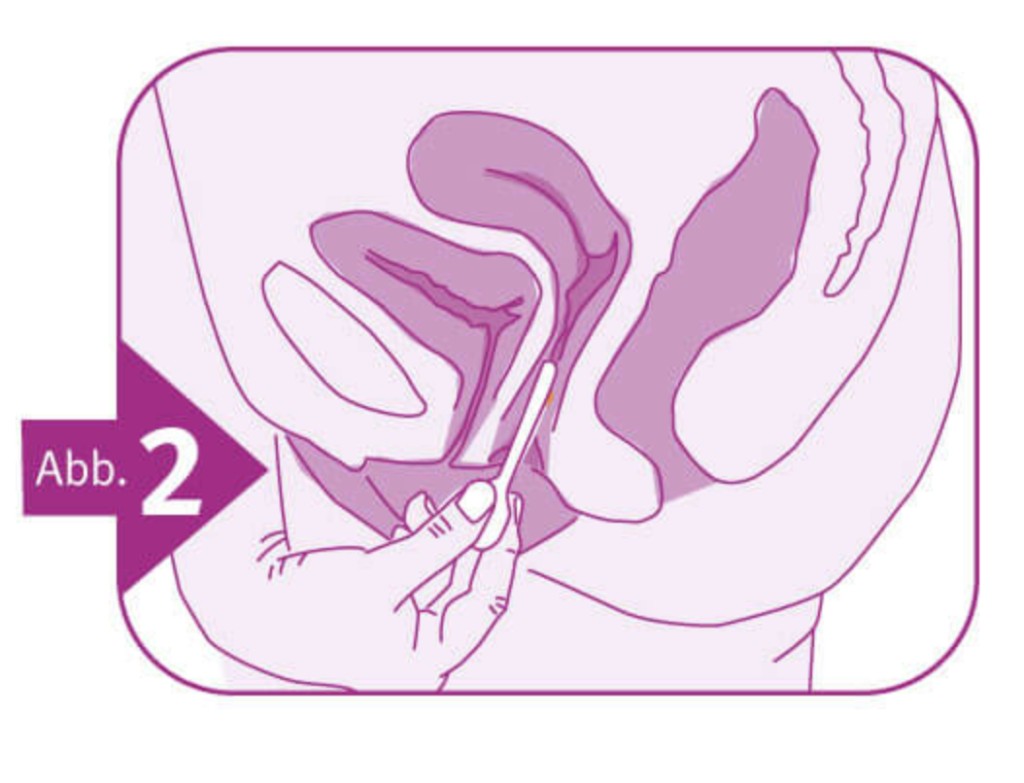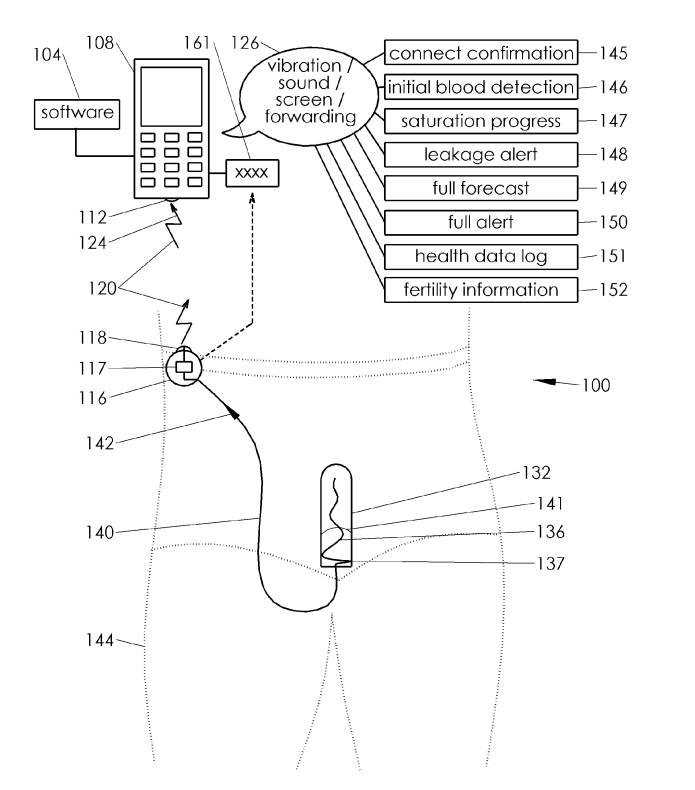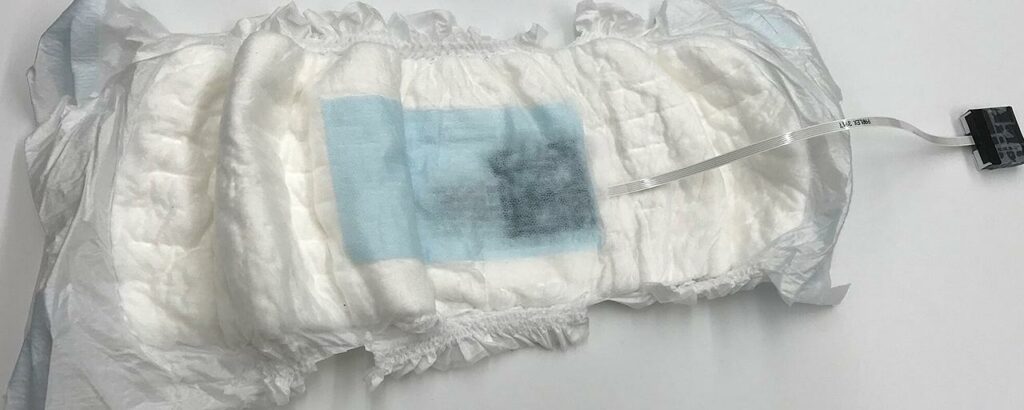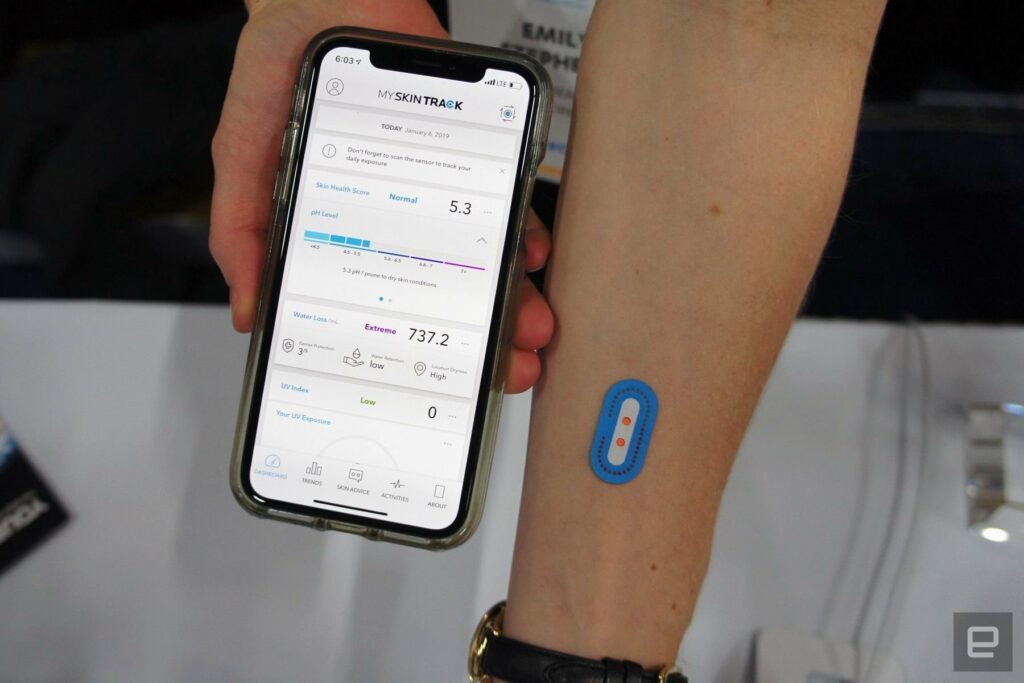Female Bodies – Intimate Health Care

Gynaecological conditions, particularly infections such as Candidal vulvovaginitis (CVV) and Bacterial Vaginosis (BV), are still a significant burden for many women, particularly as these may be recurrent.
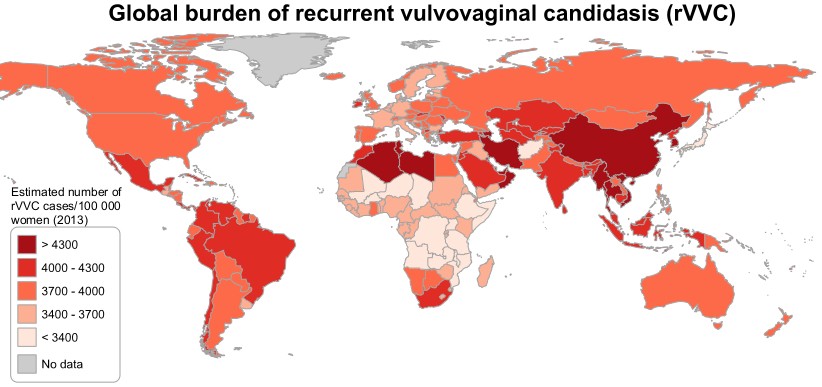
New figures show 138 million women suffer from recurrent thrush. Manchester.ac.uk
Statistically, 75% of women suffer from CVV at least once in their lifetimes, and up to a 10% suffer from recurrent vaginal infections throughout all their lives. There is a social and cultural stigma attached to women’s personal healthcare, which might lead to the adoption of unconventional treatments. The lack of knowledge surrounding this topic is the first obstacle to overcome for women to understand better their bodies and raise their confidence when seeking professional advice.
Currently, in addition to testing by healthcare professionals in primary care settings, over-the-counter diagnostic kits are available for symptomatic patients and require the user to insert an ‘invasive’ pH probe to sample vaginal mucus and detect any changes in pH. These infections are the result of shifts in the vaginal microflora, where symbiotic, beneficial microbial species are overwhelmed by other commensal species, whose unchecked proliferation leads to detrimental effects and is responsible for reported symptoms.
Our project Alma stems from the idea of developing an inconspicuous, low-cost wearable biosensor aimed at monitoring physiological markers of infection, such as lactate and pH, in vaginal secretions. On one hand, this will provide insight into what normal and abnormal physiology may be for individual women. On the other, we hope this will provide new insight into the underlying biological processes for research purposes. We hope this will enable women to take up a more active role in their healthcare, prompting them to seek medical advice as necessary and ultimately break some of the taboos associated with urogynaecological health.
Becoming BODY CONSCIOUS to CHALLENGE societal boundaries.
From big companies to small start-ups, there is a big focus on what the modern consumer expects nowadays from female intimate care products.
While developing a market analysis of our product, we recognised some trends within the women’s healthcare industry. Our attention was driven to more environmental-aware materials and product’s life cycles, giving the importance to the user:product interaction, augmenting the self-awareness and acknowledgement of our own bodies, and lastly the rising presence of wearable technology on intimate products. We found many innovative patents from tampons that track period flow to pads that can detect biomarkers such as cancer or HIV, even Laroche-Posay developed skin tracks patches that can detect anomalies in pH, UV rays and pollution!
We are looking to take a step further and challenge societal boundaries! Alma will be a biodevice that can track biomarkers related to UTIs and vaginal infections, to benefit the medical community, by decreasing the number of steps for each procedure and making patient care faster and potentially more effective. Even nowadays, among all communities and cultures, there are many taboos linked to intimate health, both for women and men. Women’s educational progress on intimate and sexual topics are still far from being accepted as normal but we aim for a change.
The body in bio(techno)logy
What are our bodies? First, they are us. We don’t inhabit them, we are them.
The Boston Women’s Health Book Collective, 1971
As noted by feminist philosopher Iris M. Young (2005), “the lived body is particular in its morphology, material similarities, and differences from other bodies”. It is also built for care, visible in daily rituals such as grooming, washing, and eating (Hamington, 2004). Evidently, a lack of everyday knowledge and misconceptions about the female body still abound (Braun, V. & Wilkinson, S., 2001). The female body has been a subject of taboo, limiting the development of women’s health and care in general (Rossmann, 2008). In spite of this, routines and behaviours we adopt as part of our every day have an impact on our lives over time. Experiences that are traditionally considered female have a meaning of their own and depend upon the subjective experiences each woman might have.
The female body has been considered a societal taboo since the early seventies, when women activists from Boston, calling themselves Women’s Doctors, decided to publish a radical and pedagogical magazine to explain women’s healthcare in a unique political and social context, accessible and understandable to everyone. Their knowledge became an extraordinary piece of writing, easily available to be shared as a model, for women that wanted to learn about themselves, communicate their fears with doctors, and challenge the medical establishment to change and improve the care that women should receive. Just a few days from publication, the magazine ‘Our bodies, Ourselves’, became an underground success that sold 250.000 copies. A liberal and public format to educate women in the knowledge and care of their own body and wellbeing. The magazine, now book, introduces stories of women who experienced illegal and often mortal abortions, domestic violence, precarious pregnancies and at the same time natural remedies to treat vaginal infections, menstrual and ovulation pain and to educate women on the different types of contraceptives. A book that was written by women, for women.
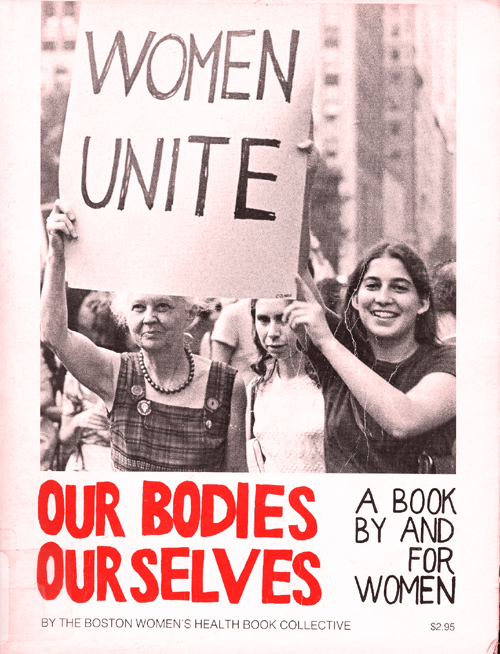
Today’s society is calling women to talk about it. Women that recently turned to the internet for answers, instead of keeping doubts inside. The need for speaking about their own bodies and intimate health is becoming urgent in addition to a sense of belonging and sisterhood. Having a conversation with your body and understanding its silent language is the challenge.
Following these lines, we are developing Alma as an opportunity for women to create a community of sharing and caring, starting with self-care and knowledge of their own body.
From October, we are working on the user experience profile of Alma, developing workshops to understand better any possible perspective on the matter and how to integrate Alma in every women’s life, promising a more transparent future in women’s healthcare. Females that are taking control of their bodies as a new precious and intimate practice of self-care are ready to become a participant in the culture and the knowledge of science.

From Girl Biophilia documentary.
Enabling women to take up a more active role in their healthcare, prompting them to seek medical advice as necessary and ultimately break some of the taboos associated with urogynaecological health.
Here a list of publications and toolkits that we would love to share:
- Our Bodies Ourselves book. Website here.
- Apps for tracking period like Clue and Eve.
- Thinx blog on vaginal infections
- An article on period tech
- Daye’s blog to learn about your discharge
- What is in your vaginal pH? Article here.
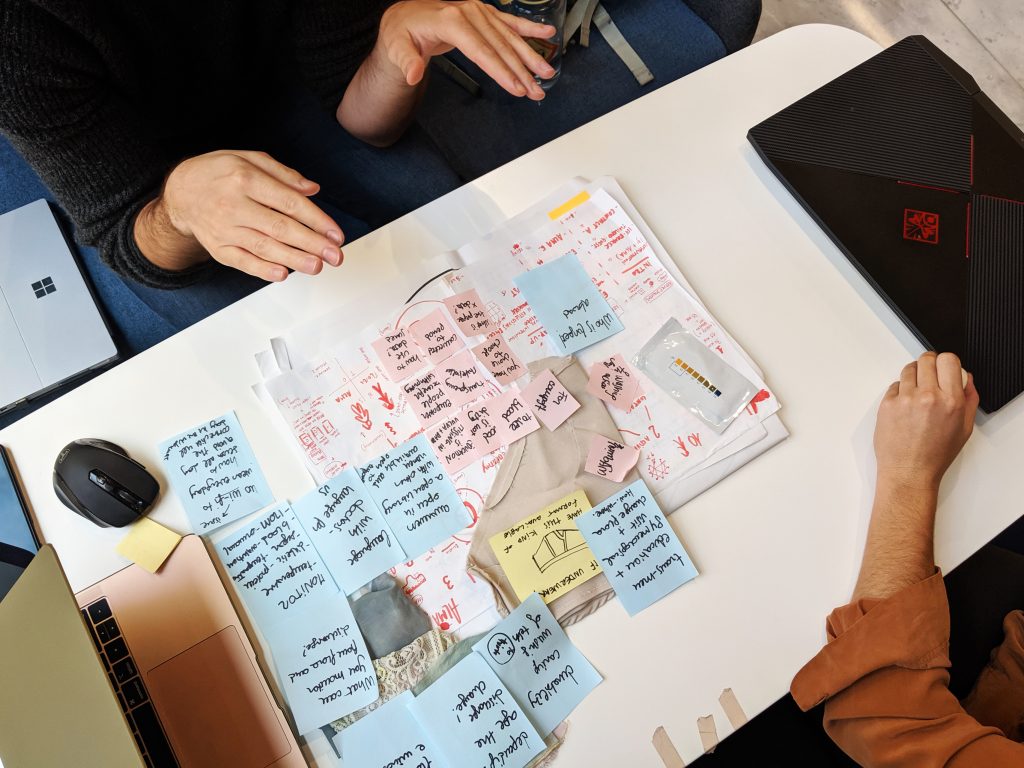
User Experience Co-creation. 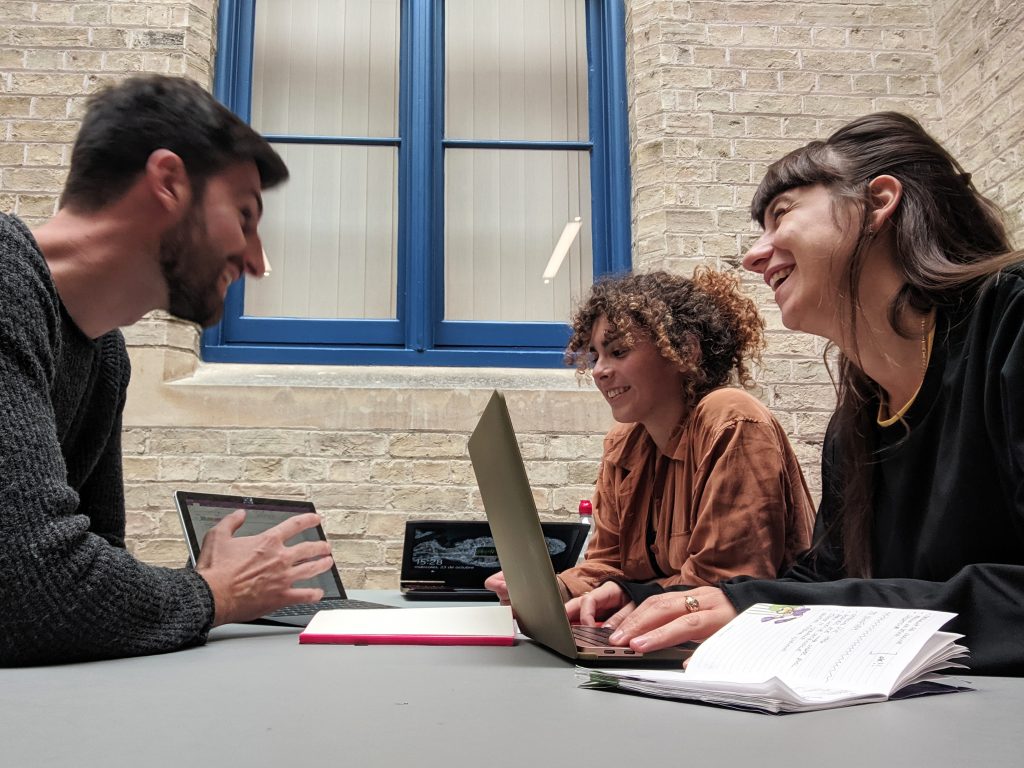
Tommaso, Julia and Giulia.
The team is growing too.
Julia Jover Cano is a student in Product Design at Central Saint Martins UAL. Her research focuses on cultural differences and similarities found in market analysis and user experience methods. Currently developing her skills supporting Alma project and Studio intO.
For any further comment or details, please write to us at tomasello.gi@gmail.com
Thanks for reading!



